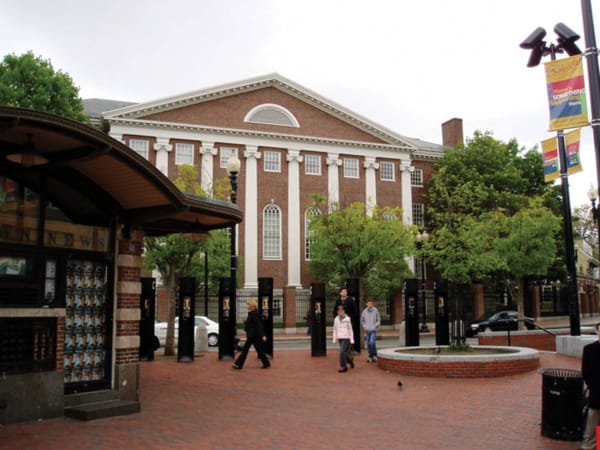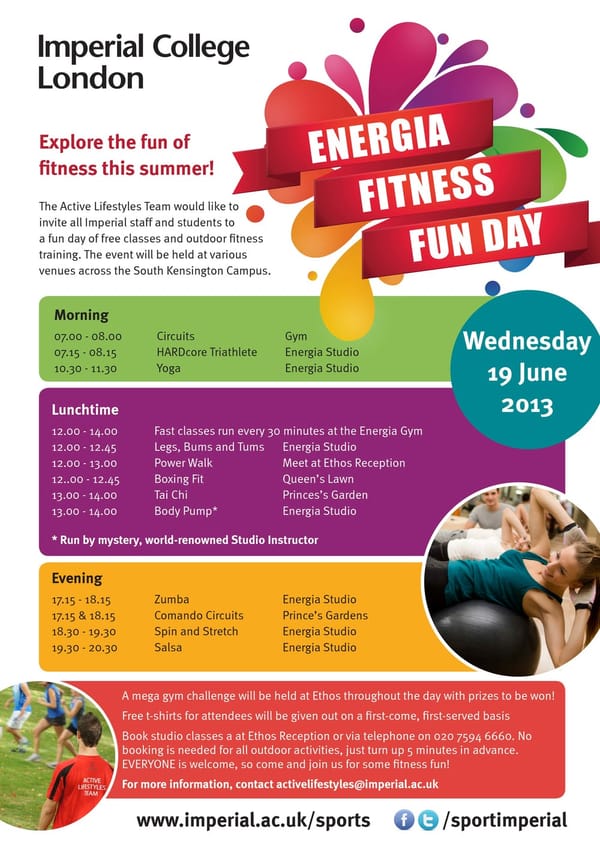Imperial climbs league table
Cambridge on top, but Imperial claws back a few places to finish ninth in the Guardian league table.

A lacklustre performance in the NSS (National Student Survey) left Imperial College London trailing behind the University of Oxford and the University of Cambridge, the other two thirds of the ‘Big Three’ UK-based academic institutions, in the latest league table compiled by the Guardian. A score of 64 fell short of Cambridge’s 75 and Oxford’s 71 respectively. In fact, a host of other academic institutions surpassed the College, ranging from the London School of Economics through to the University of Surrey. The findings are anticipated to irritate many staff and students within the College and may raise questions over the validity of league tables in general. Although, overall, Imperial did climb from 13th to 9th place.
Imperial College London is first and foremost a scientific institution and would always say that it is deeply entrenched in instilling rigour into its students from the outset. With current global dynamism and expansionism, problem solving skills are indispensable when job hunting. This, fortunately for students at Imperial, was reflected in the league tables. Imperial exhibited a job prospect score of 84, superseding all competition (the London School of Economics was close at hand with a score of 82; being within walking distance of the city, a global financial powerhouse has its benefits). The pitfall seems to be the road that a student must travel in order to obtain an Imperial degree. Many an unsavoury moment of staring at a blank page must be endured. Given that each and every student here at Imperial College has to experience this on a recurrent basis, this might rationalise depleted student satisfaction.
Numerous other scores inhibited the overall score of the College, including expenditure per student head and a meagre “Value added” score of 6.7/10 (versus University of St. Andrews’ leading 8/10). This arguably is where scepticism begins to creep in among staff and students at the College; the score takes people’s grades before and after university and sees if the university has ‘added value’ by improving the student’s academic abilities. This has become a hot topic of debate before, with many students arguing it could lead to grade inflation by universities. This would raise the score by it looking as if the university had made the students perform better in assessments. The general use of satisfaction by students has been controversial as to how accurate it is at measuring how good a university is.
Inspection of endowment does bring some surprising results. As of July 2012 the endowment of Imperial College London was in the region of £79 million. Contrast this with Oxford’s £3.7 billion endowment, viable of bailing out a small European Union state. Compare this furthermore with Harvard University’s $30.4 billion endowment (around £20 billion). It becomes apparent that Imperial College London is punching above its weight, producing world class students and research on a budget comparable to the spare change in the pockets of some other academic institutions. Couple this with the ability of the College to attract a multitude of highly-skilled students from overseas and perhaps the fortunes of Imperial are not all doom and gloom.
The league table by the Guardian makes student satisfaction the centrepiece of the academic dinner table. It would appear, from surveys for other league tables (by the Times Higher Education Supplement), that students think that the fault of many Departments within the College is to suffocate students with a massive academic workload.
Interestingly, the “Entry Tariff” for Imperial was the third highest in the country. This is the UCAS points score that students at the university achieve. Above Imperial are Cambridge and Oxford. The Guardian also released their individual subject tables, showing what university it considers the best for various subjects. The fortunes of the different subjects were extremely mixed. Some doing extremely poorly, and some coming out on top. Earth and Marine Sciences was rated number one in the country, with 94% of students being in a career after six months. Mechanical Engineering was also top, with an average entry tariff that stood head and shoulders above the rest. Civil Engineering took second place, behind UCL’s equivalent. EEE, General Engineering (this specific course is not offered at Imperial and so this is likely to be an amalgamation of the engineering subjects), Materials, and Chemical Engineering all came third. Physics came fifth, with the percentage of students satisfied with the feedback (64%) being the main distinguishing factor between Imperial and the other courses. Feedback again hit Mathematics, who were seventh. Medicine came in ninth and had the lowest score of all the courses for feedback – with only 47% saying they were happy. Although this was better than King’s College London, who managed to score an impressively poor 18%. Chemistry and Biosciences were the two worst performing at Imperial. Chemistry were in 12th, with satisfaction with teaching, feedback, and the course seemingly dragging down the rating. Biosciences performed the worst by quite a margin: they came 25th in the subject table. Again it appeared to be satisfaction that caused the problems.
The Guardian league tables are published yearly. Research performed by economists at Royal Holloway found that improving a Department’s overall score in the Guardian’s league table was linked with an increase in applications. Studying the UCAS data and the league tables published by the Guardian from 2004 onwards showed that an increase in the overall score by one standard deviation saw an average 4.8% increase in applications. This only applied to Departments at the top of the table. The authors of the paper said: “Universities cannot afford to neglect their performance on league tables so long as they wish to establish and maintain a consistent reputation to attract the best of students.”
Statistics can be found at: http://www.guardian.co.uk/education/table/2013/jun/03/university-league-table-2014








